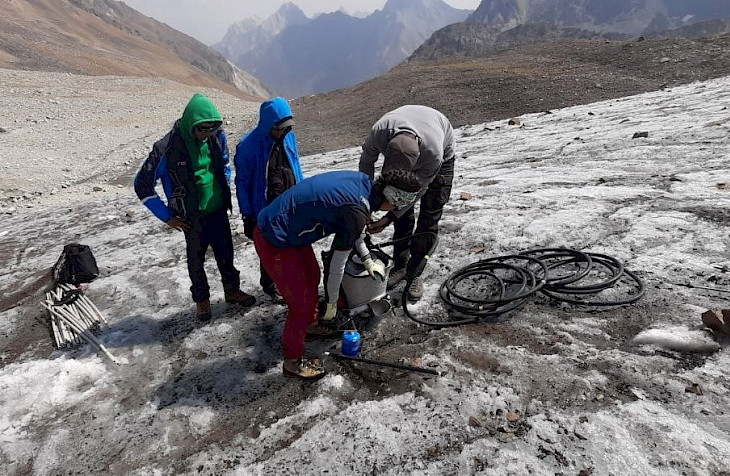The Yakarcha Glacier, located in the Gissar Range at the headwaters of the Varzob River, has retreated by 3.5–4 meters over the past two years, according to the Glacier Research Center of the National Academy of Sciences of Tajikistan. The findings come from a joint expedition with researchers from the University of Fribourg in Switzerland, reports Asiaplus.tj.
An international research mission held between August 22 and 28 revealed that the glacier is in a state of active melting and undergoing severe degradation. In its accumulation zone, where snow and firn would normally persist, almost no permanent snow cover remained this August—threatening the glacier’s mass balance.
Experts stress that seasonal snow plays a vital role in sustaining glaciers and ensuring water resources across the region. During the expedition, researchers installed ablation stakes to measure melt rates and placed a thermistor at a depth of up to 15 meters, which will help track internal changes in the glacier under the influence of climate change.
Parallel hydrological studies were conducted in the Maykhura River, which flows at the glacier’s base. Results confirmed that rising average air temperatures in recent decades have accelerated glacier degradation, posing serious risks for ecosystems and water security in Central Asia.
The Yakarcha study is part of a series of glaciological expeditions supported by the GEF–UNDP–UNESCO project, which also included work on the Zulmart Glacier in the Eastern Pamirs, Glacier No. 457 in the Gunt River basin, and the Nusai Glacier in the Obikhinqou basin.
The expeditions brought together interdisciplinary teams, including young researchers and women scientists—highlighting Tajikistan’s growing scientific capacity in climatology and glaciology.
Tajikistan holds the largest glacier reserves in Central Asia. As of May 2025, the country’s glaciers covered an estimated 8,476 square kilometers, representing 6–8 percent of its territory.
CentralasianLIGHT.org
September 5, 2025

